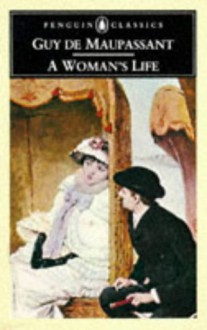

Nel 1887 Maupassant inizia a scrivere Pierre e Jean, che realizzerà in soli due mesi, cogliendo spunto da un reale accadimento. Un amico ha ricevuto in eredità una somma notevole da un frequentatore della di lui famiglia. Pare che il padre di quest’amico fosse vecchio e sua madre giovane e bella. Non è un fatto così raro da destare sconcerto, ma lo scrittore inizia a riflettere sull’importante lascito e, fra una congettura e l’altra, si fa spazio l’idea che svilupperà nel romanzo.
Pier e Jean esce sulla “Nouvelle revue” del dicembre 1887 e del gennaio 1888, poi in volume edito da Ollendorff, con l’aggiunta di una prefazione (che fa scalpore) per raggiungere le trecento pagine, numero indispensabile per considerarlo romanzo.
Bastano le parole di Zola per capire cosa sia Pierre e Jean: “una meraviglia, opera di verità e di grandezza che non può essere superata”.
Al termine della familiare gita in barca in compagnia di Rosémilly, vedovella giovane e graziosa alla quale entrambi i fratelli dedicano le loro attenzioni, il notaio Lecanu comunica ai Roland che il signor Leon Maréchal ha lasciato tutti i suoi averi al figlio secondogenito, Jean. Pierre, stupefatto e geloso per la fortuna capitata al fratello, inizia a sospettare che la generosità del vecchio amico di famiglia celi una verità terribile e ripugnante. Ciò che scoprirà Pierre, uomo introverso, solo e smarrito, sarà causa di gravi e grandi sofferenze. Per lui. Sconterà una colpa che non gli appartiene. S’imbarcherà come medico di bordo sulla Lorraine, col cuore gonfio di rabbia e dolore, mentre gli altri lo saluteranno con l’indifferente cortesia che si riserva a un estraneo, per tornare subito dopo a riprendere la commedia della loro vita fatta d’ipocrisia, convenienze ed egoismo.
Guy, affiorano le tue paure e ossessioni. Le voci che ti volevano figlio d’un amore nascosto ti hanno perseguitato.
E colpisce sempre il tuo bisogno di vita, quella vita che hai morso e goduto forse per disperazione.
Mi piacerebbe poterti abbracciare.

Femme Fatale combines the title story and three other short stories from French author Guy de Maupassant. I can only say that they felt rather explicit and openly contained lesbianism which quite surprised me since it was being written in Victorian times. Something else I notices was that it had a French-ness that I can't really explain any better.
The stories themselves were okay, but none of them left a real impression with me. Rather, they felt quite flat, but I'm not sure some of it was lost in translation. Since I don't read in French, it would have to be in translation again, so I don't think I will be reading more of this author.
Little Black Classic ~ 15

This is the first thing that I have read by Maupassant and I found it very enjoyable. It is very much a 19th century French novel, which I mean as a great complement. It focuses on the life of a woman in the French gentry and starts at the moment she leaves the convent in which she has been schooled completely unprepared for the realities of life, its squalor, deception and evil.
The book records her various disappointments and betrayals and is full of all the things that a good 19th century French novel should have - murders, love affairs, debts, and sex scenes that push the limits of what could be written. I am a huge Zola fan and it was Zola and Flaubert who were the primary influences on Maupassant which shows. The prose is constantly fascinating, and very much in the French naturalist tradition. Good fun with its melancholy bleakness. I'm definitely going to read more Maupassant.
I do not believe that "A Woman's Life" is the best translation of the title "Une Vie".